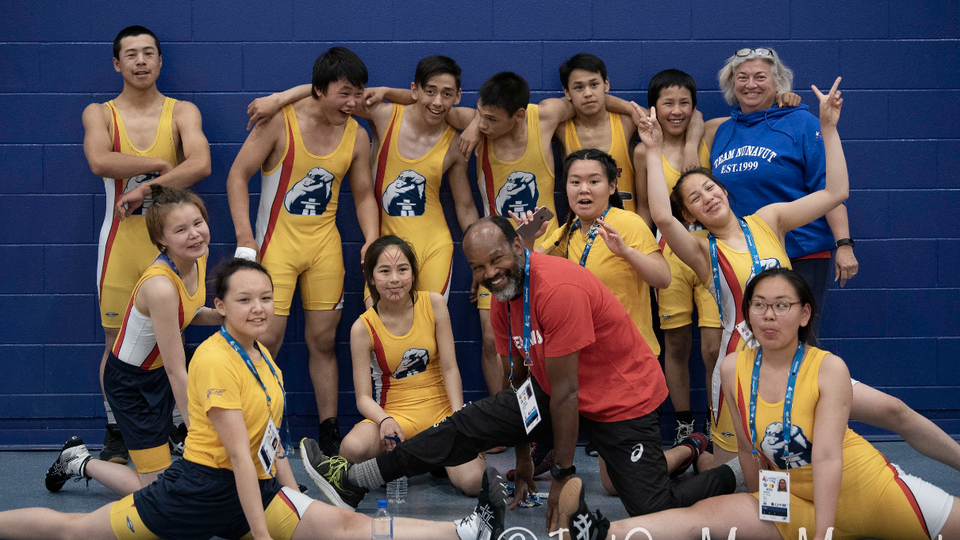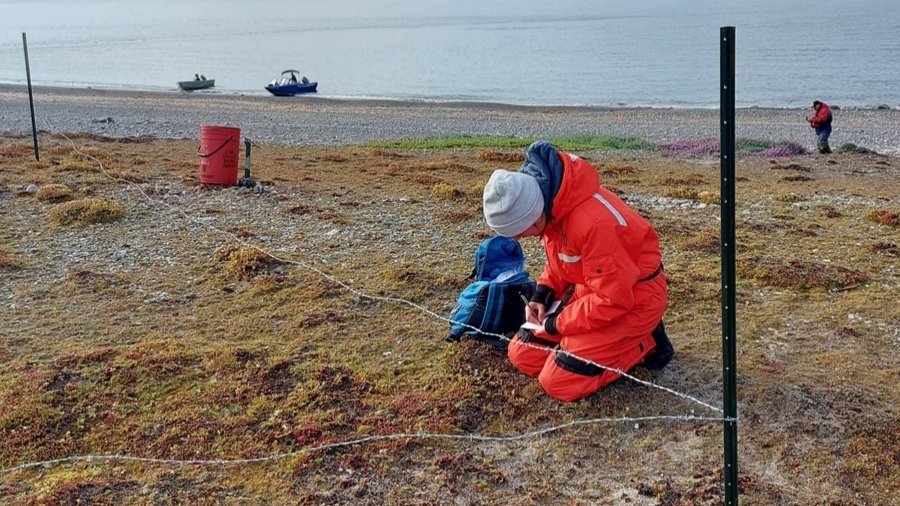
October 16, 2025
More than 30 years after first being asked to tell her story, Juno Award–winning musician and activist Susan Aglukark has released her long-awaited memoir.
“I hadn’t done enough yet,” she recalled about initially turning down the idea.
Now 58, Aglukark’s memoir looks back on her career starting in 1992, when Susan was living in Ottawa and was asked to contribute to a compilation album of Northern music.
From there, she recorded an independent album called Arctic Rose, a soulful debut that wove together the beauty of the North with stories of identity and resilience. National airplay soon followed, earning her two Juno Awards in 1995. She released two Christmas albums and seven studio albums, and achieved a number-one hit on the Canadian charts with ‘O Siem.’ She later won two more Juno Awards, in 2004 and most recently in 2022.
Aglukark remembers her life in two sections—Before and after she was assaulted.
Her early life, or “before”, started out pretty ideal. The daughter of a preacher, she was raised in Arviat, Nunavut, which was part of the Northwest Territories at the time. She and her siblings sang in church while her dad got involved in political organizing. He was one of the founders of early self-government that helped lead to the creation of Nunavut as a territory.
“I’m very proud of where I grew up and how I was raised,” Aglukark said. “I was born to this incredible, traditional generation of Inuit.”
But the “after” changed her life.

At 58, Susan looks back on her life after an enormous career that began in 1992. (Credit: Susan Aglukark)
When she was eight years old, a man sexually assaulted her and others in Rankin Inlet. She got the chance to speak out and testify against him in her early twenties. She also named her abuser at the National Inquiry into Missing and Murdered Indigenous Women and Girls in 2018.
Aglukark has spent the rest of her life healing. She’s wondered about the effects of her trauma as she’s tried to peel back what happened and why. She began to see a connection to her people and the intergenerational trauma they’d endured; the anger, the fear, the questioning and the self-doubt. She wanted to regain control and help others do the same.
Much of the healing came through writing music, but her popularity following the hit single “O Siem” led Aglukark to question her place in the industry.
“Could I be an artist? Am I an artist?” Aglukark wondered.“I didn’t know what I didn’t know,” she said.
Airplay on MuchMusic, new songwriting opportunities, and doors opening all around her marked the next chapter of her career. The sudden fame, combined with community expectations and her own self-doubt, led Aglukark to question whether she should continue to pursue her art, give up, keep her office job and always wonder what would have been.

Aglukark has spent the rest of her life healing. She’s wondered about the effects of her trauma as she’s tried to peel back what happened and why. (Credit: Susan Aglukark)
Aglukark continued to work on her music, determined to find her place. Her artistic expression became a mental health tool to overcome her present and her past. She began feeling confident for the first time in her life. This confidence would lead to something she never thought she deserved—The idea of possibility.
“Songwriting created something in my mind,” Aglukark said. “Something I didn’t know I needed. Possibility. It was a relief.”
Her mind, still full of anger, as her abuser carried on with his life, unpunished. The songs eventually gave way to a shift, helping her to navigate. The fear and rage eventually gave way to healing, as she started to see what she could do with the simple idea of making a difference. At the same time, she began to find her voice.
This is when the seeds of a memoir started to really take shape. Still early in the healing process, Aglukark began to see how working with other artists helped her be gentler with herself. How the act of expression reminds the body and mind, “maybe everything will be ok,” Aglukark said.

This possibility is at the heart of her new memoir. It led Aglukark to start believing in herself and her culture.
“Yes, I am an artist and I have things to say,” she said.“I was beginning to understand, you can do more, you can do anything.”
Over time, what began as a love of singing gradually transformed into a powerful source of healing.
“Without it all happening, I wouldn’t be here,” Aglukark said.
The process encouraged more positive thinking and the idea that things will get better. She also grew to understand how overcoming personal challenges could help others. The pieces were coming together, the gaps of the past were being filled in, and sharing all her experiences became her goal.
Aglukark founded The Arctic Rose Foundation in 2012 to support Northern Inuit, First Nations and Metis youth through arts-based programs. The charitable organization focuses on engaging in cultural and creative projects to help young people unlock their full potential. Along with her husband and partner, she travels across the country to help others get unstuck.
“I want to help others in my community get back to being whole,” Aglukark said. “I want them to understand the hope and the wow!”
She’s more committed than ever to sharing her experiences, on the road to her own understanding. Aglukark tries to imagine herself as a child, in the “before”, and what she would say to her younger self. The process of healing takes on different forms, and Aglukark is looking to align her past with her present and the future. She’s working on creating a purpose for those who need to nurture their own hopes and dreams.
Aglukark hopes to keep writing and visiting all the Northern communities. She remains active in her foundation, continuing to identify needs and find ways to enhance the creative lives of others, especially the youth.
“I want to drive and explore, take the time to explore our amazing country,” Aglukark said. “I want to visit all the Northern communities again, while I can.”
While she hopes to keep finding her own healing and happiness, she’s aware there is a lot of work to be done. Her dream is to have others continue her work and help pass on the Kihiani. The idea we are all born with to survive, move forward and overcome, because we must.
“I do what I have to because I must,” Aglukark said.
You can learn more about her memoir, Kihiani: A Memoir of Healing, new music, and tours at https://www.susanaglukark.com.





